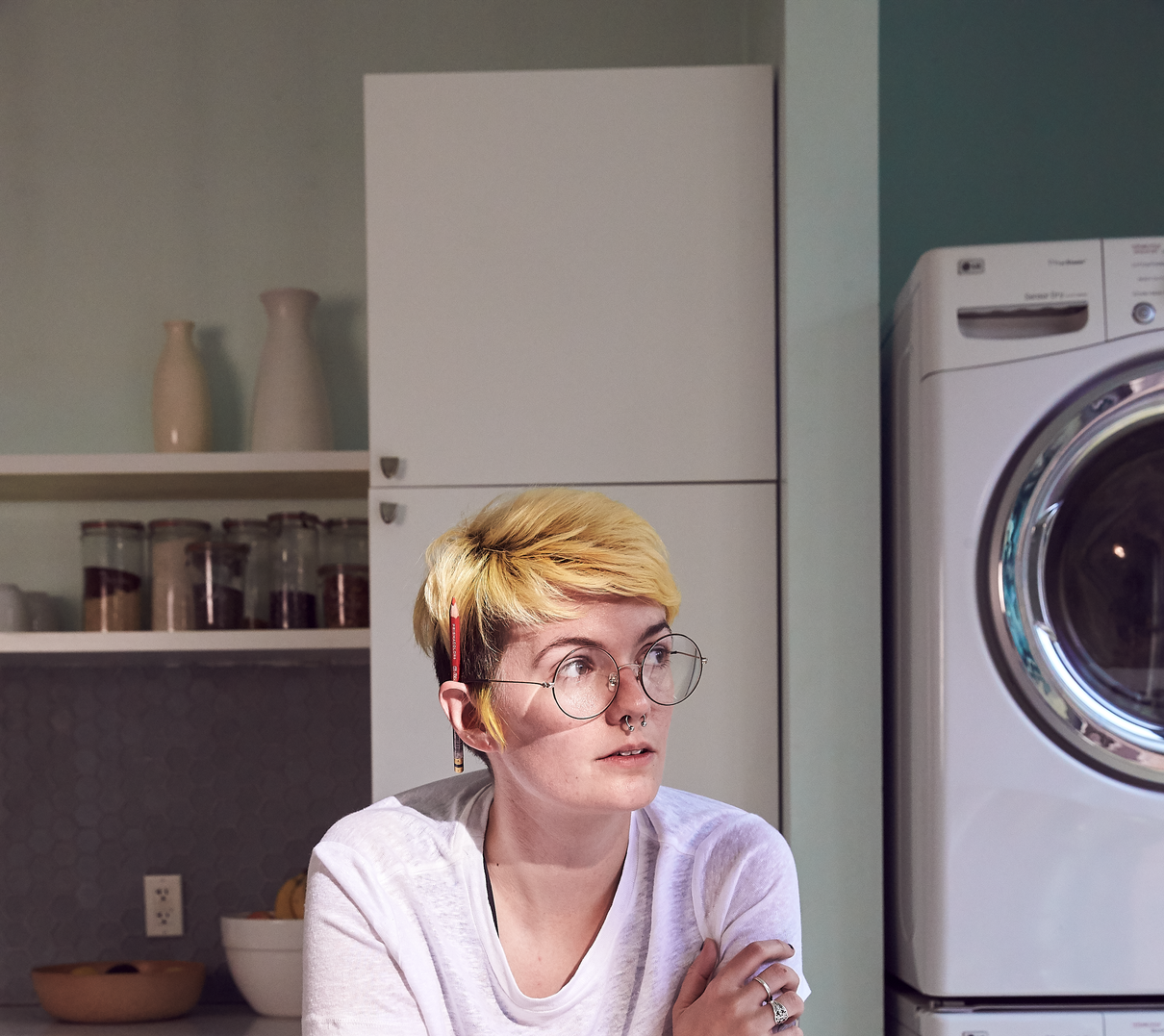Finn is a 29-year-old tattoo artist living in New Haven, CT. They are a queer nonbinary person who loves art and crafting of all kinds. Through their unique journey of identity and self-acceptance, Finn has learned to care for their skin after developing psoriasis, and use their skin as a tool of self-expression with tattoos.
Growing up in the small, conservative town of Monroe, CT, I felt unsure about who I was or where I fit in. As a kid, I always thought, I’m a weird person ‘cause I don’t feel like I fit in with girls, but I’m also ostracized for hanging out with guys. It can be so oppressive being around people who look at you like you have three heads if you’re even slightly different. So growing up in that environment really stifled my exploration of my gender identity and experimentation with my appearance. As a naturally anxious person, it was easier for me to keep to myself than show people who I really was.
It wasn’t until I was around 25 that I learned what being nonbinary meant, and in finding a community of queer and trans friends, I found the language to articulate my gender and sexuality to myself and others. Around the same time, I got sick with psoriasis: a chronic condition in which skin cells build up and form scales and itchy, dry patches, and which also causes swollen, sore, and stiff joints. For me, psoriasis is such an intense experience that there are times when I can’t focus on anything but my body and skin. It was traumatic at first because my flare-ups isolated me. I felt I couldn’t really go out and be with people not only because of my aching joints, but also because I was self-conscious about people judging my skin. It brought on a lot of anxiety. But as I got more in touch with my body, learning more about its needs, its abilities, its limits, and its desires, things started to improve. In the process of focusing so closely on my skin, I confronted who I am and was able to better understand how I wanted to embody my gender. I decided that I wanted to adorn my body in ways that aligned with my nonbinary identity.
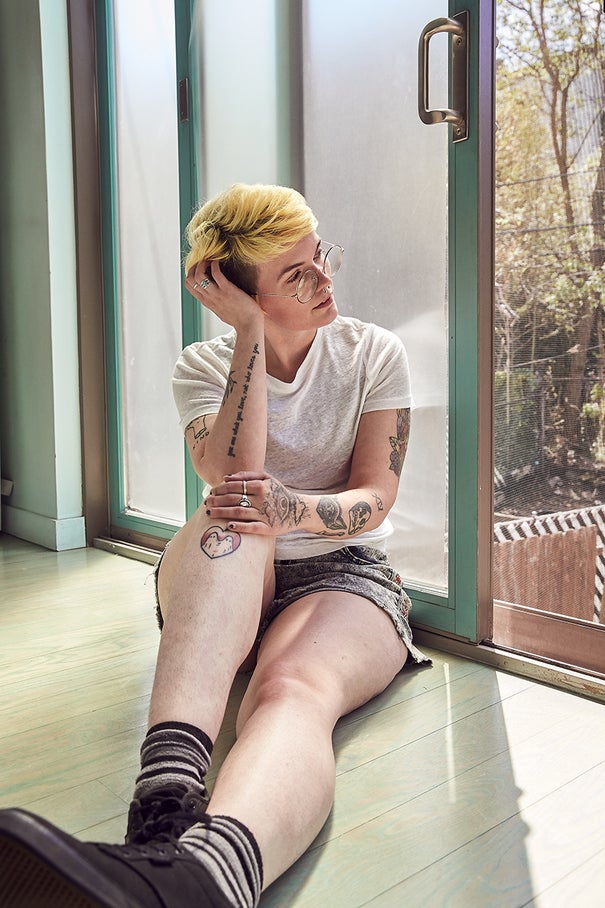
Art has always been an outlet for me, and it helped me cope with feeling different as a kid. When I started to explore pursuing art as a career, I sought out a tattoo apprenticeship. The art of tattooing — which I practice out of a private studio in New Haven — allows me to connect my love for illustration with my desire to help others feel more comfortable and confident in their skin. Tattoos hold a special significance for many queer people, because body art and modification allows us to have more control over our physicality and appearances. With queer and trans bodies being as policed as they are in our society, feeling a sense of control over your body is a way to feel both autonomous and in alignment with yourself, which is so important when it comes to maintaining your mental health. My body is my home, and tattoos allow me to personalize it while also gaining back some of the control I feel I’ve lost due to my chronic psoriasis. Seeing my tattoos on my skin reminds me that my skin might not be perfect, but it’s mine and it’s beautiful.
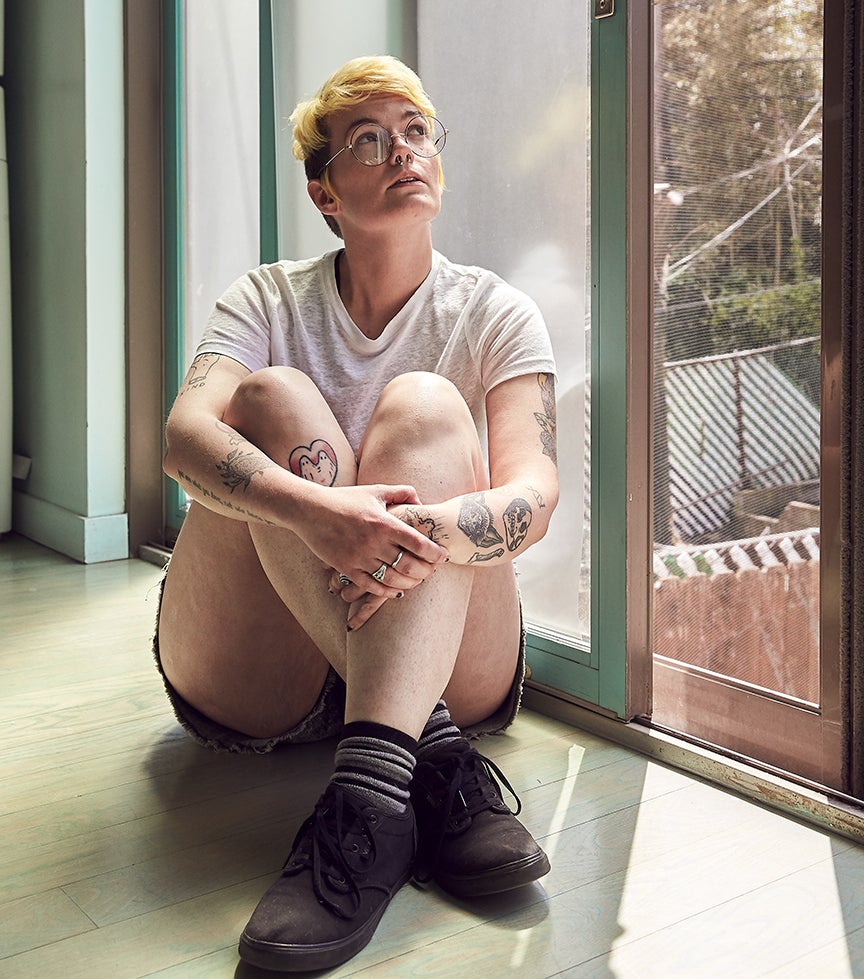

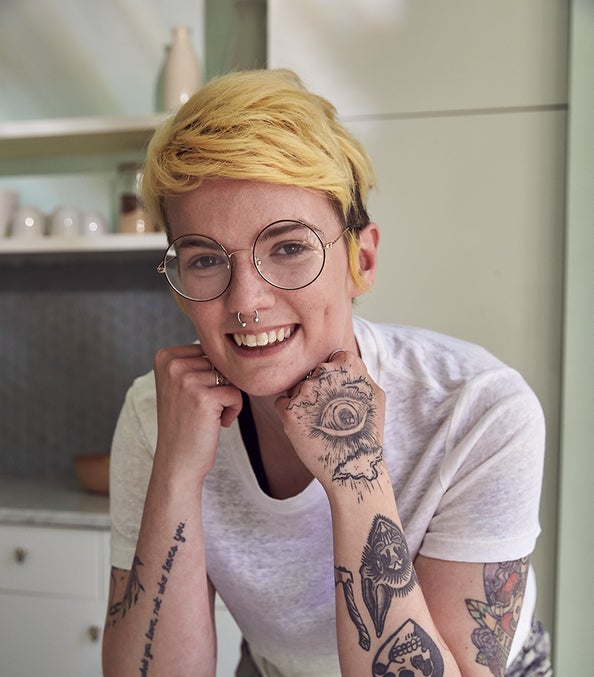
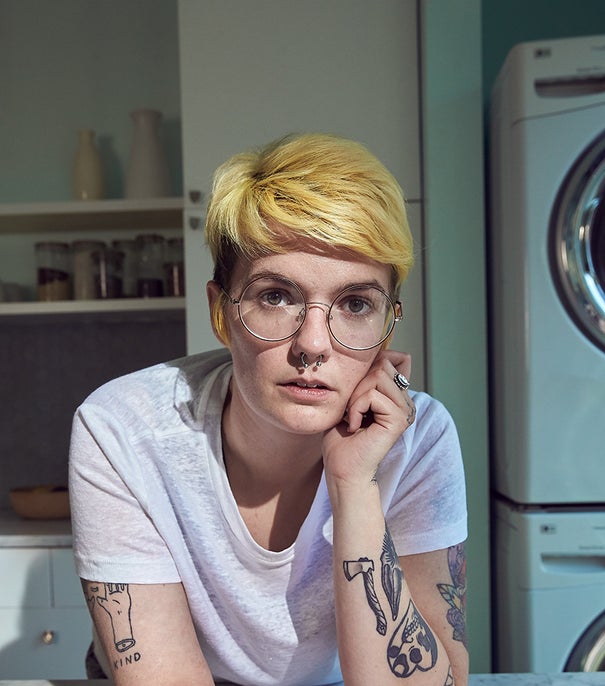
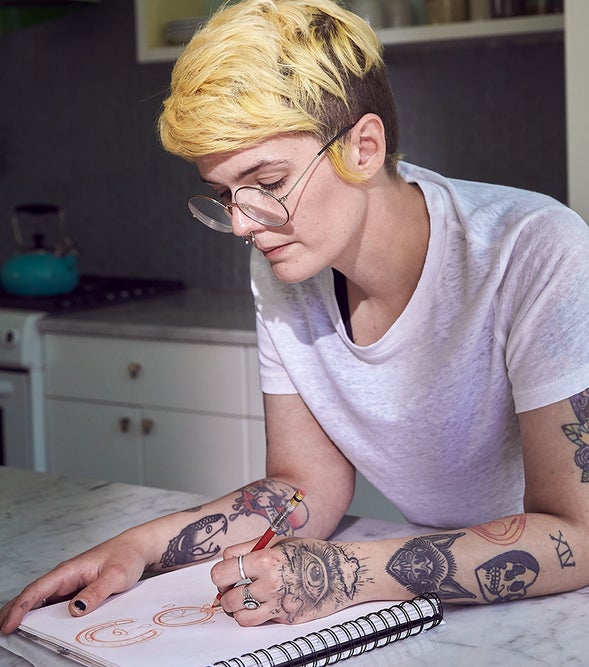
Another way I gain back some of that control is to set aside the time to take care of my skin on a daily basis. I treat the moments I spend nurturing myself and my skin as a really positive experience, and I focus on celebrating even the smallest of victories. Giving myself the time and space to rest and recover is a victory, and taking a relaxing bath is an important win for my overall health. Figuring out what works for me has been trial and error: At one point, I tried to get a gym membership, thinking, This is what self-care is. But I wasn’t enjoying it. Trying to implement self-care according to other people’s standards or suggestions felt like punishment. Self-care isn’t one-size-fits-all; it’s what makes your heart sing and what makes you feel good.
Moving at my own pace and creating a routine that works for me requires patience. I’ve had to break the mental association between productivity and self-worth. This hasn’t been easy, but going to therapy has helped immensely in changing how I view and talk to myself. If I look in the mirror and say, ‘You’re having a flare-up, you don’t look good today,’ I’ll immediately refute that with a positive thought to talk myself out of it: You’re just having a bad day; you’re not ugly. I’ll have a conversation with myself and reframe how I’m talking to myself, because if I do that enough, I inevitably start to believe it.
Too-small-to-fail steps anyone can take to challenge perfection anxiety
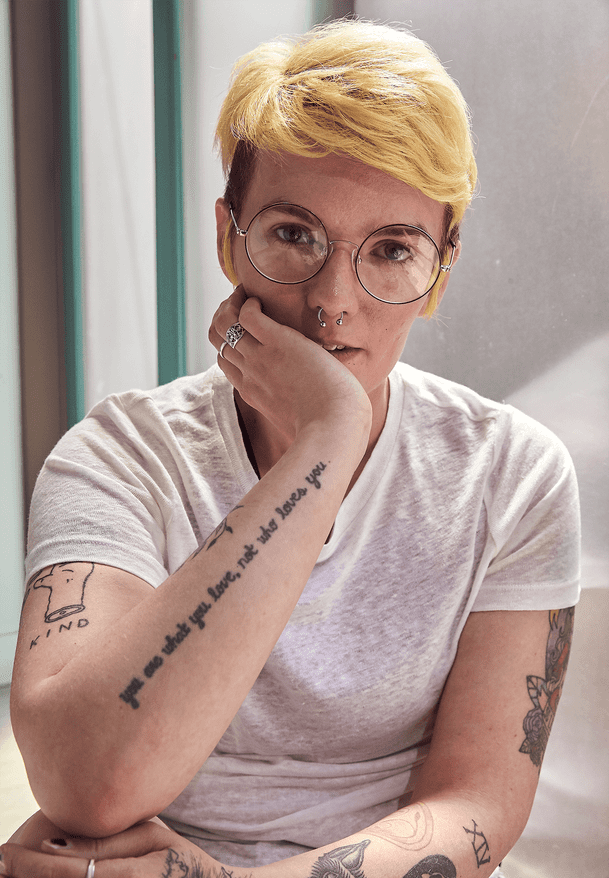
At the end of the day, you have to be friends with yourself, because the only person who can truly give you confidence is you. If I can talk myself down with negativity, I can do wonders with positivity.


